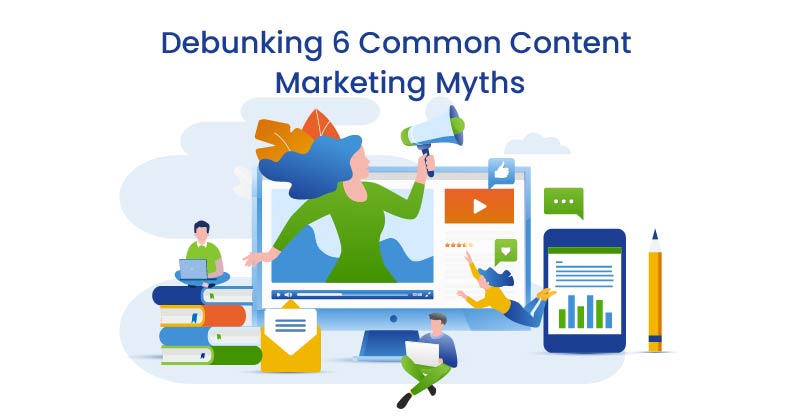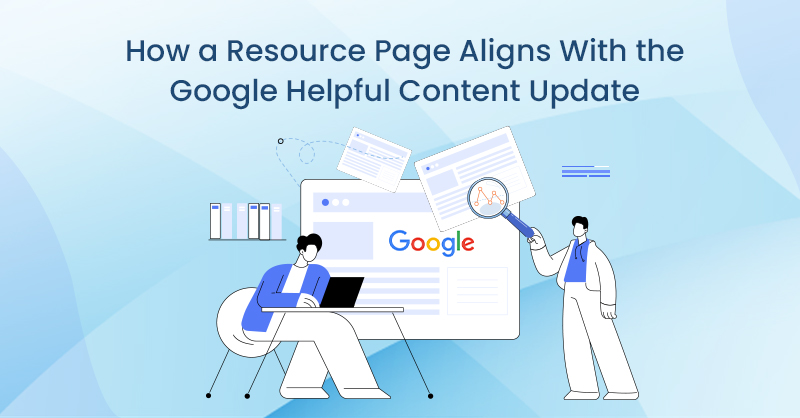As consumer’s become savvier to marketing tactics and more adverse to being sold to, content marketing continues to prove its value.
Practically speaking, there are many reasons to include content marketing in your overall digital marketing strategy, including increasing sales and customer retention, building brand awareness, and establishing yourself as an industry leader.
If you’ve ever had doubts about using content marketing for your company, let the numbers speak for themselves: 96% of marketing decision makers say that content marketing has been effective for their brand, and content marketing generates three times as many leads as traditional marketing tactics.
Part of what makes content marketing an exciting challenge, too, is that there are so many different avenues to take.
For some brands, video content might be the most effective way of reaching (and, ultimately, converting!) their audience, while good old-fashioned blogging might suit another company much better.
At the same time, almost every company can benefit from a website filled with dynamic and informative brand-specific content. So, no matter how you look at it, all roads eventually lead to content marketing – at all levels of the marketing funnel.
Unfortunately, many myths are circulating about content marketing, what it involves, and how it can work as part of an effective digital marketing strategy. This blog will get to the bottom of the top 6 common myths about content marketing. Let’s dive in!
Myth #1: Anyone can write web content
As the internet has grown and adapted over the years, so has the need for well-written, informative content. This means that, by now, there is a very specific type of writing that internet users have gotten used to.
Unless you have studied web content and feel comfortable replicating it (and doing a good job), it’s best to leave writing web content to the pros.

Think of it this way: you wouldn’t design and build a beautiful, technologically advanced physical storefront featuring all your wonderful products and salespeople, only to paint the store’s sign – the first thing the public will see when they encounter your brand – with finger paint, would you?
This would be highly unattractive, appear unprofessional to potential clients, and ruin your brand’s public image.
The same thing applies to content writing: even if you have the fastest, flashiest website, poor content can turn many potential customers off. Small things like typos or poor grammar can be make-or-break.
Not following the best practices of content writing, such as including keywords effectively, can make your brand come across as outdated and unprofessional. Luckily, professional content writers know just how to hook your readers – and keep them hooked.
Myth #2: Content marketing is only blogs
For many business owners, the first thing they think of when it comes to content marketing is blog writing. Although blogs should be integral to your content marketing efforts, they’re not the be-all and end-all of content marketing.
In fact, anything from videos to podcasts, and landing pages to infographics, can be considered web content. This means that there are many different ways of reaching your target audience – but it can also get confusing.
This is why it’s essential to have a well-researched content strategy that understands the needs of your audience and lays out how you can create content that will ultimately show them that your business can meet their needs.
Different audiences will be drawn to different types of content. For example, those in younger age groups tend to have shorter attention spans and are more interested in short-form video content than long-form written content.
Researching and planning your content strategy will allow you to understand which type of content fits your potential customers best.
Myth #3: Using AI to write content is a-okay
Although AI can be useful for some aspects of your business – chatbots, for example, can be useful to automate and streamline customer communication – one area where you can rule out relying on AI is in your written content.
While AI can help with keyword research or creating an outline, it lacks the personal touch of a good old-fashioned human writer and can actually be flagged and penalized by Google.

As mentioned above, web content must be engaging and well-researched, and AI content is neither.
You’re much more likely to see results with writing from content professionals than AI-generated content, as it will showcase a unique perspective and have a distinctive voice.
AI content can only pull from what’s already on the internet and will therefore reiterate the same information from your competitors. As a result, your business is unlikely to stand out from the crowd and will likely fail to convert potential customers.
Myth #4: Content marketing has no ROI
It can be difficult to determine the ROI of content marketing as content is more of a slow-burning area of digital marketing, and there are multiple possible metrics you can track.
That said, effective web content should generally result in increased website traffic and conversion rates.
Consistency and adaptability are also important factors in developing an effective, conversion-heavy content marketing strategy: writing one blog every six months or a few a year won’t have the same effect as creating a solid blogging schedule.
Likewise, adapting to waxing and waning internet trends will allow you to keep up with your audience and anticipate their needs.
Your content needs to be consistent, relevant to your audience, and valuable, and work in tandem with a solid SEO strategy. Nobody said it’s easy to boost your ROI with content, but it certainly is effective.
Myth #5: Slow = bad
Compared to other digital marketing areas like paid advertising, content marketing can seem time-consuming and laborious.
Many business owners shy away from implementing content marketing as part of their wider digital marketing strategy as they have been wooed by the shiny immediacy of PPC.
However, there is a lot to be said for content marketing’s slow poke nature, as it can serve many different purposes for your business and provide value that no other form of digital marketing can.
For example, although it can take months for a content strategy to get off the ground (either because of how long it takes Google’s algorithm to crawl and index your website, or just building a solid relationship with your audience), content marketing is more likely to create a lasting impression and relationship with current and potential customers.
This is because content is valuable to your audience: when done properly, it is informative and helpful and doesn’t just focus on pushing a specific product or service.
Without a doubt, content marketing is the best digital tool to use when you want to build awareness and authority with your audience. Just like any good relationship, this can take time, but it’s more than a worthy investment to make for the betterment of your business.
Myth #6: More content is better
Yes, consistency in content is key, but that doesn’t mean it’s a good idea to spam your audience with a new piece of content every single hour – or even every day. The key here is to provide quality content that will be valuable to your audience.

How much content should that be, exactly? The answer depends on your business, the audience you are targeting, and what your goals are for your content. A good way to gauge this is to look at competitors in your industry who rank well on Google.
Then, you can take steps to follow a similar approach and see if you have success. You will most likely have to tweak a few things to fit your business, but at the very least, you will have a rough idea of what you should be aiming for.
It’s essential to strike the delicate balance between too much and too little content, as both can make or break your content strategy. Posting too frequently may annoy your audience, whereas not posting enough may result in being forgotten.
This is where excellent research during the creation of your content strategy will come in handy!
What are you waiting for?
There’s no time quite like the present to start planning and implementing a content strategy for your business. Effectively implementing content allows you to position your brand as an authority in your industry and provide valuable information that your prospects will appreciate.
Instead of selling to your audience, offer them something funny, entertaining, or informative instead. From building brand loyalty and awareness to improving your SEO ranking, the benefits of a solid content strategy are plentiful.
Get in touch with the content marketing experts at TechWyse today to learn more about what we can do for your business – your audience is waiting!







on
This article is absolutely correct. I’ve done the SEO for a multitude of websites and many of the owners want to pay a little bit of money and have me do spun content, and they just don’t understand how low-grade spun content is. Content is the queen, in my opinion, of a good website. Without fresh high-quality content, search engines won’t like you and potential customers won’t like you either. It does take a bit of time to write a nice high-quality article — but the benefits far outweigh the time it takes. A high-quality piece of content can bring thousands of visitors to your page or blog post if done right. I’m in the middle of creating my own website, and I can’t stress enough how important fresh, high-quality content is. It should never be spun by software.
on
Each one of these tips could be an article onto itself. I especially like the idea of refreshing content. Going back and making positive changes to content or the marketing strategy for that content is something I do all the time and it helps. Although building brand awareness and content engagement is something that I’ve always struggled with the minutia of. I would love to see articles expanding on tips #11 and #12.
on
Hey Anant,
Great post. Writing is not for the light hearted, so I always take my hat off to anyone that gives it a go. I did not really know what content marketing meant – well I had an idea but I am better informed now.
I will be looking to write content for marketing soon enough, but for now I write a blog and that is enough pressure. However in the next couple of months I start to write up my product and then I will be working on different strategies in order to incorporate my product.
Old content can be refreshed, when do you think it is called old content? Is that after a year or six months or even longer? I am not sure. Maybe content needs to be updated when you change you views on the subject you have written about or when you knowledge grows on the subject matter.
I am horrified that content can be automated. Like I get it happens on Twitter, but I would not be visiting a blog regularly if I knew it was automated. That,s just dam well cheating.
Thanks for this post Anant, you have opened up my eyes and I have got some information to think about.
Rachel.
on
Hey Rachel,
I have read some of your content. It was really great, i like your concept and your topic for blogging. Old content means if you have written some content on digital marketing or any Technology or gadgets topic earlier and now there is some update on that topic then you need to update that content so that your user will be get latest update.
I hope that you will get success for your product through content marketing and i hope that you learn from my post.
Thanks for stopping by and share your insight
on
I wouldn’t focus as much on including some keywords in the content. While it is sometimes relevant to be sure that the client will find what it wants, I think the right keywords will come mainly by using the commonly used names (and not too much sophisticated) and the mind will do the rest.
The point that I would agree with is the update of old content that matters. It happens to me often to end up in webpages that had aged years and sometimes, some update would be very welcome because it is obvious some things became irrelevant because of the time. Meanwhile, I think the main effort is into creating new content more than anything.
Finally, about quantity, I find it matters. Being only about quality and have too little content tend to annoy. I mean, how could an user pass a lot of time on a website without much content? Also, if there’s not like a new article every day or every week, the user won’t come back to the website to see the new content available.
on
Hey Anant, great post about content marketing myths. I learned quite a few things, so thank you. I can’t imagine that automated content would ever be effective!! It would be worse than any IVR experience. But I assume the automated stuff would be obvious.
Jenn
on
Hi Jenn,
Happy to see you on my post!! It will be my pleasure that you learn something new about content marketing from my post. Thanks for stopping by.
on
Hi Anant
What a great post.
You have discussed the myths of Content marketing and I must say that you are spot. I agree with all your points. Thanks for sharing. Have a swell weekend
on
Hi Ikechi,
Thanks for your kind words. have a great week ahead.
on
nice article about the content marketing myths, i encourage human written content than automated content, even if the content is picked up by the automated delivery we should take all precautions to edit the content again and make it more appealing and unique
on
Hi Sripani,
Thanks for your appreciations!! I feel glad that you learn something new from my content.